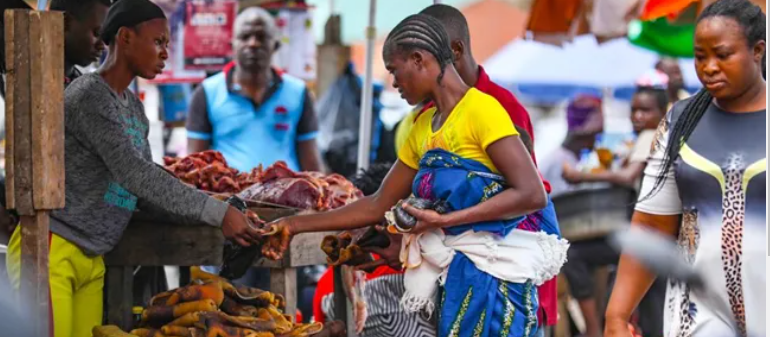Nigeria’s inflation rate has shot up to 26.7 percent in September 2023, up from 25.8 percent in August.
The nation’s annual inflation continues to accelerate for the ninth straight months to reach an over 18-year high.
Persecond News reports that the upward and negative trajectory of inflation in Nigeria is mainly attributed to the second-round effects of the removal of fuel subsidy and the devaluation of the Naira against the greenback on both the official and parallel market.
Prices of food which are the most relevant in the Consumer Price Index (CPI) basket, sky rocketed to 30.6 percent in September, up from 29.3 percent in the previous month and the highest since August 2005.
Consumer Price Index (CPI) is a measure of the average change overtime in the price paid by urban consumers for a market basket of consumer goods and services.
In Nigeria, the CPI measures the change over time in prices of 740 goods and services consumed by people for day to day living in the 36 states.
Consumer prices rose 26.7% year-on-year, compared with 25.8% in August, according to data published on the National Bureau of Statistics’ website on Monday.
Survey by Persecond News in the Federal Capital Territory revealed that residents lamented high prices of food items in the aftermath of the removal of petrol subsidy by the Federal Government.
At some markets, the prices of some food items have soared by almost 50 per cent.
A civil servant in the FCT, Mrs Charity Ugo, bemoaned the current economic hardships in the country, saying many poor people can no longer afford two square meals per day.
She noted that the farmers-herders clashes, kidnapping, and banditry had have forced many farmers to abandon their farms thereby causing food shortage and food inflation.
























Leave a comment